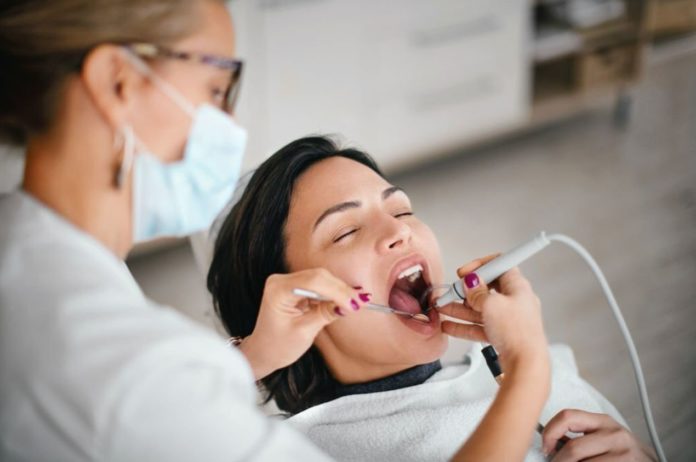Probiotics can significantly cut down on the buildup of dental plaque, according to a recent study.
Probiotics are well known for their benefits to the digestive system, but it is perhaps less generally known that they can also benefit oral health.
One of the first studies to examine the use of different microorganisms for dental reasons, Millar et al. found that the number of oral pathogens decreased with the consumption of probiotics and in particular the reduction of Streptococcus mutans and Candida albicans.
The goal of the study was to see how oral probiotics containing the Streptoccus salivarius K12 strain affected secretory immunoglobin A (sIgA) levels in the saliva, salivation rate, and oral biofilm.
Immunoglobulin A is an antibody protein that plays a key function in the immune system and is found in the mucous membranes, making it the body’s first line of defense against colds, viruses, and sickness.
Patients who met the inclusion criteria were randomly assigned to one of two groups: placebo or probiotics.
They were all instructed to brush their teeth twice a day with a toothpaste that did not contain any antibacterial or antiplaque ingredients. They had to have at least 20 permanent teeth, be free of systemic or chronic disorders, have no more than five cavities, and not be on any vitamins or antibiotics within a month of the study. Before the stability of the achieved results was examined, they took one lozenge a day for four weeks and then two weeks without.
Unstimulated salivation rate, sIgA concentration, Turesky index, Papillary-Marginal-Attached index, and Papillary-Marginal-Adjusted index were all employed as part of the assessment after four weeks of intervention and two weeks of washout.
Reduction in Plaque
In comparison to the placebo group, there was no difference in IgA and salivary flow rates in the probiotic group. At four and six weeks, however, the probiotic group showed a significant reduction in plaque accumulation.
The microbiome in the oral cavity is the second largest in the human body. More than 700 kinds of microorganisms live in the microbial community, which is based on microorganisms’ interactions with the host environment as well as their interactions with one another. A dynamic equilibrium between non-infectious (commensal) and opportunistic (cariogenic) microorganisms characterizes a healthy mouth cavity. A high-carbohydrate diet, poor mouth hygiene, some drugs, and systemic disorders can all tip the balance.
Tooth decay, which leads to cavities, is the most common noncommunicable disease in the world, caused by an imbalance of opportunistic microorganisms such as streptococci, lactobacilli, actinomyces, bacteroides, and bifidobacteria. In this regard, one option for combating tooth decay is to replace these microbes with non-infectious forms. Oral biotics and probiotics are two medications or supplements that can help restore the balance of microflora in the gut.
Earlier strains proved ineffective
According to the researchers, the most commonly prescribed probiotics by dentists are strains that have a hard time colonizing oral tissues, which is why a new generation of streptococci-containing probiotic strains has been developed.
The researchers said: “We readily acknowledge several limitations to our study. Further research with a larger sample size is planned based on the data generated in this present study. A four-week intake of probiotics with two-week washout are relatively short periods. Moreover, although probiotics may affect different salivary components, we assessed the influence of probiotics on a single protein, sIgA, having hypothesised this parameter would be the most sensitive one to probiotic intake.”
Source: 10.1159/000504164
Image Credit: Getty
You were reading: Probiotics can help reduce tooth plaque – says study
